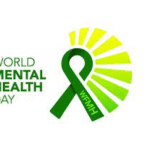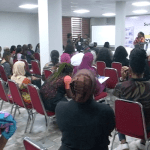United States Surgeon General Vivek Murthy has issued a new advisory warning that social media can negatively impact the mental health and well-being of children and adolescents and may be contributing to a youth mental health crisis.
In a report, Murthy warned about the risks of social media use for young people and called on policymakers, tech companies, researchers and parents to “urgently take action.”
Dr Murphy said in a press statement Tuesday that there is growing evidence that social media use is associated with harm to young people’s mental health,”
“Children are exposed to harmful content on social media, ranging from violent and sexual content, to bullying and harassment.
“And for too many children, social media use is compromising their sleep and valuable in-person time with family and friends.
“We are in the middle of a national youth mental health crisis, and I am concerned that social media is an important driver of that crisis—one that we must urgently address,” he said.
The 25-page advisory (pdf), issued through the Department of Health and Human Services (HHS), cites numerous studies on how social media use has impacted children.
The advisory describes some of the potential benefits of social media use, such as building a sense of community among people with shared identities and interests.
But the HHS report also notes the potential drawbacks of prolonged social media use, like the development of poor body image and eating disorders, exposure to bullying and hateful content, deaths and injuries linked to popular risk-taking challenges spread on social media platforms, and the potential normalization of self-harm and suicidal behavior.
The advisory also described links between social media use and poor sleep and attention problems.
A 2019 study cited in the new HHS advisory found that children between the age of 12 and 15 who spent more than 3 hours per day on social media faced double the risk of experiencing poor mental health outcomes, including symptoms of depression and anxiety.
Social media platforms can also expose children to predatory behavior, such as sexual or financial exploitation.
According to a 2023 study (pdf) cited by the HHS advisory, 58 percent of girls who used Instagram, 57 percent who used Snapchat, and 46 percent who used TikTok reported unwanted contact from strangers on those platforms.














